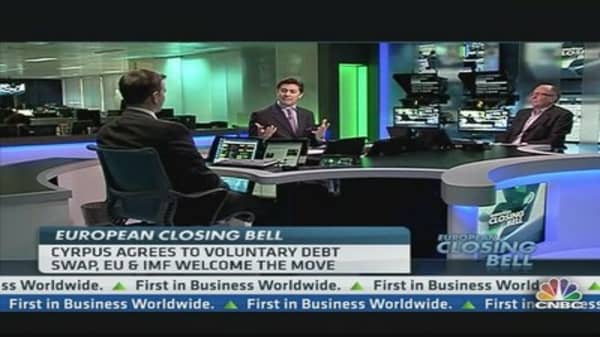European Union antitrust regulators announced Monday that they had reached a "preliminary conclusion" that 13 of the largest banks had violated EU antitrust regulations by colluding to prevent exchanges from entering the credit derivatives business.
The regulators tell the story like this: Back in the days before the financial crisis, the Deutsche Börse and the Chicago Mercantile Exchange wanted to enter the gigantic derivatives business by creating swaps that would trade on exchanges. This threatened the lucrative over-the-counter business of the big banks, so they got together to shut out the exchanges.
The basic complaint is that the banks (Bank of America Merrill Lynch, Barclays, Bear Stearns, BNP Paribas, Citigroup, Credit Suisse, Deutsche Bank, Goldman Sachs, HSBC, JP Morgan Chase, Morgan Stanley, Royal Bank of Scotland, UBS) instructed the data service provider Markit and the International Swaps and Derivatives Association to deny Deutsche Börse and the Chicago Mercantile Exchange licenses to use their data—basically index benchmarks—to create exchange-traded products.
But they didn't seek to shut out Deutsche Börse or the CME altogether. According to the European Commission's statement, the banks said that the exchanges could have licenses to use the data for over-the-counter products. In other words, the banks were inviting the exchanges to compete on exactly the same grounds they competed with each other. That is a strange sort of anti-competitive behavior.





